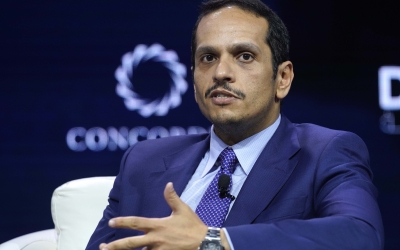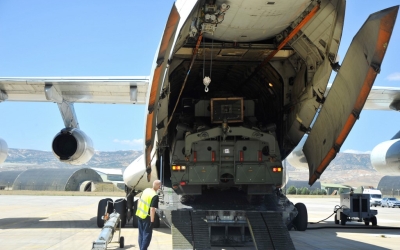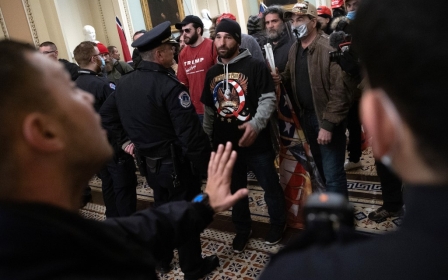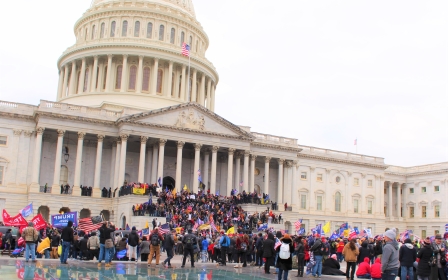Biden appoints staunch Turkey critic Brett McGurk to National Security Council
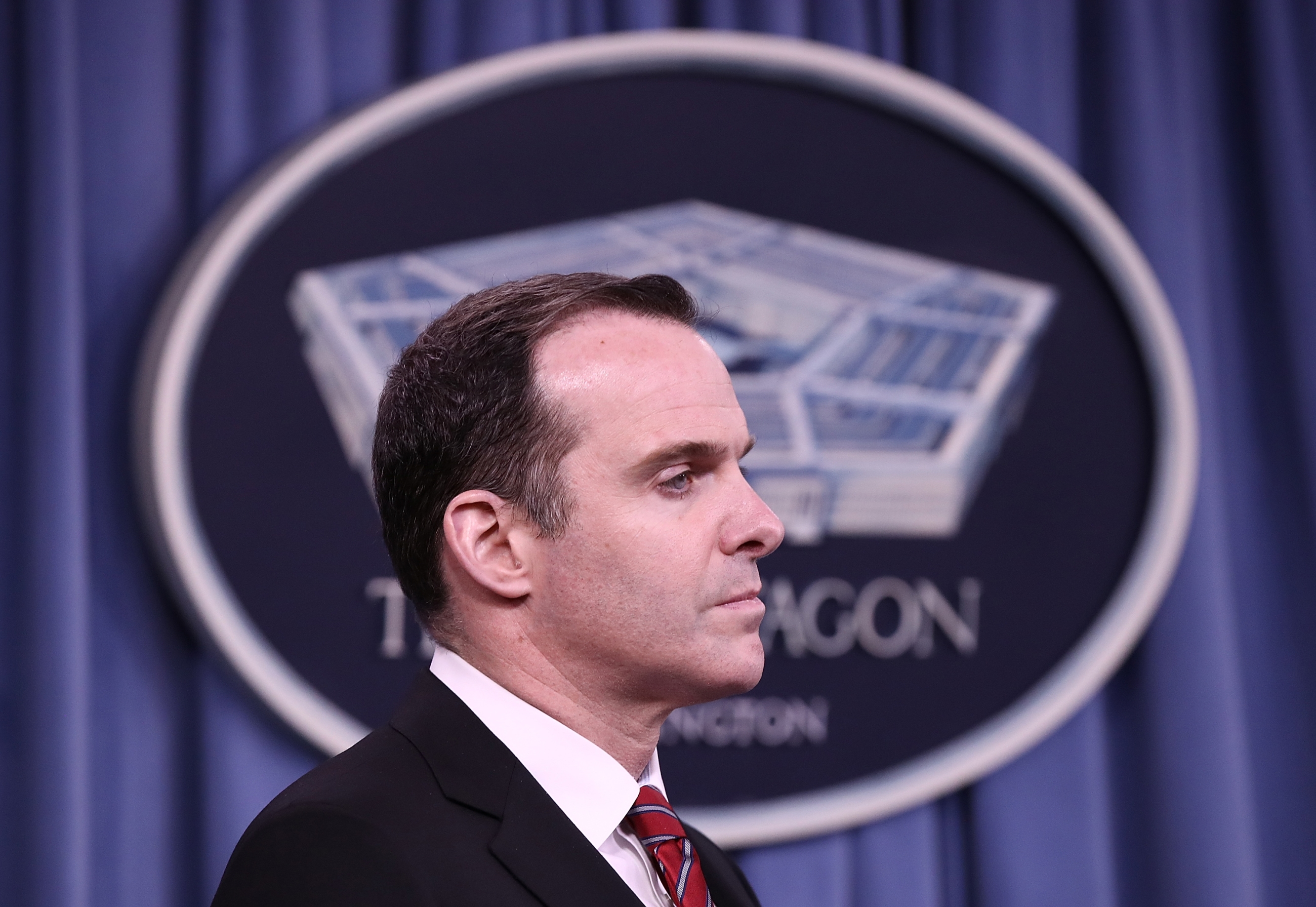
US President-elect Joe Biden nominated Brett McGurk, an outspoken advocate of American military presence in Syria and staunch detractor of the Turkish government, as Middle East coordinator on the National Security Council.
McGurk, a veteran of the national security establishment who served in various capacities under successive Democratic and Republican administrations, has frequently criticised the Turkish government over its role in Syria and broader regional policies.
McGurk quit his role as the US envoy to the international coalition to combat the Islamic State (IS) group late in 2018 over President Donald Trump's decision to withdraw American troops from northern Syria.
Biden formally announced McGurk's appointment on Friday along with the nomination of other national security officials and Cabinet members.
Turkish officials have long viewed McGurk with suspicion over his role in strengthening the partnership between US forces and the Kurdish-dominated Syrian Democratic Forces (SDF), which is led by the YPG militia - a Syrian offshoot of the Turkey-based PKK.
New MEE newsletter: Jerusalem Dispatch
Sign up to get the latest insights and analysis on Israel-Palestine, alongside Turkey Unpacked and other MEE newsletters
Both Washington and Ankara consider the PKK, which has been engaged in a military campaign against the Turkish government for decades, to be a terrorist group. But the SDF has been praised by US politicians and security officials over its role in defeating IS.
Turkey wary of McGurk
In 2017, Turkish Foreign Minister Mevlut Cavusoglu openly called for McGurk's removal. "Brett McGurk, the USA's special envoy in the fight against Daesh [IS], is definitely and clearly giving support to the PKK and YPG. It would be beneficial if this person is changed," Cavusoglu said at the time.
A Turkish official told MEE after McGurk's nomination was revealed by US media reports earlier this week that the appointment was not surprising since Biden was gathering former Obama administration officials with "awful" track records to fill up national security positions.
"Beyond doubt, McGurk has harmed Turkish-American relations," the official, speaking on condition of anonymity, said. "He no longer has much room in northern Syria to support the YPG. But his attitude towards other issues in the region from Libya to Iraq remains to be seen."
McGurk has been outspoken against the Turkish government, especially since leaving his post.
'Beyond doubt, McGurk has harmed Turkish-American relations'
- Turkish official
Late in 2019, McGurk suggested that Turkish President Recep Tayyip Erdogan may have been harbouring IS leader Abu Bakr al-Baghdadi, who was killed in a US raid weeks earlier.
The newly appointed Biden official said in a series of tweets at the time that Trump should ask Erdogan: "How exactly was Baghdadi living in a safe house with well-prepared tunnels less than 5km from your border?"
Trump had thanked Turkey, among other nations, after the US operation that killed Baghdadi in October 2019.
Later that year, after Erdogan called for Muslim-majority countries to work together against "western threats" and denounced Israel's treatment of Palestinians, McGurk slammed him, sharing a Jerusalem Post article titled, "Erdogan bashes Israel, calls on Muslims to unite against the West".
"Erdogan called on Muslims to 'unite against the west' at the very moment Turkey is hosting US-designated-terrorist Ismail Haniyeh of Hamas in Istanbul," he wrote on Twitter.
US-Turkish relations
When the UAE normalised relations with Israel earlier this year, McGurk welcomed the agreement and suggested that the two countries' common animosity towards Turkey helped bring them together.
"Among the key drivers for the historic normalization between #UAE and #Israel: Turkey's regional policies, long viewed as increasingly threatening in both Jerusalem and Abu Dhabi," he said.
In a separate Twitter post, he said normalisation agreements between Israel and Arab countries "warrant broad US support".
The National Security Council advises and assists the president on foreign policy and defence matters. Biden himself has been a vocal critic of the Turkish president.
In an interview with the New York Times ahead of the US elections, Biden described Erdogan as an "autocrat," saying that he would support and "embolden" Turkish opposition leaders to defeat him "by the electoral process".
Relations between the US and Turkey, two Nato allies, have faced difficult challenges over a myriad of issues over the past years. Last month, the US imposed sanctions on Turkey over its purchase of Russian air defence systems.
Turkey faced bipartisan congressional outrage over its military campaign in northern Syria in 2019, which was enabled by a US military withdrawal.
McGurk on Iran
The incoming Biden administration faces enormous challenges in the Middle East amid shifting political alignments in the region and growing domestic opposition to foreign interventions.
McGurk has previously called Turkey "the world's largest sanctions buster on behalf of Iran". Still, he has called for diplomacy with Tehran, denouncing Trump's maximum pressure campaign against the Islamic Republic.
"It is important at this stage to consider how best to protect US interests and maintain pressure on Iran without further increasing the risks of an unpredictable conflict," he wrote in a 2019 Bloomberg column.
McGurk called for multilateralism in tackling relations with Iran but called the nuclear deal that saw Tehran scale back its nuclear programme in exchange for lifting sanctions against its economy "far from perfect".
"A starting point for new talks, for example, might demand that Iran agree to stay within the 2016 deal's limits and release all Americans wrongfully held in its prisons," he wrote.
"In parallel, Washington might agree to freeze newly imposed sanctions, so long as negotiations toward a strengthened deal are making progress."
Biden has pledged to "reassess" relations with Saudi Arabia, but McGurk has a history of praising the kingdom for its security cooperation with Washington.
After a 2019 drone attack on Saudi oil facilities that Riyadh and Washington blamed on Tehran, McGurk suggested that Saudi Arabia may unilaterally respond to the incident with military strikes.
"If true that this brazen attack on Saudi soil was launched from Iran, then Saudi Arabia has every right to act in self-defence. It has [the] capacity to hit fixed targets with precision. Saudi pilots flew in our initial strikes against ISIS and performed well," he said.
However, he acknowledged in the same tweet that Yemen, where Saudi air strikes have killed thousands of civilians, "is another story".
Middle East Eye delivers independent and unrivalled coverage and analysis of the Middle East, North Africa and beyond. To learn more about republishing this content and the associated fees, please fill out this form. More about MEE can be found here.


